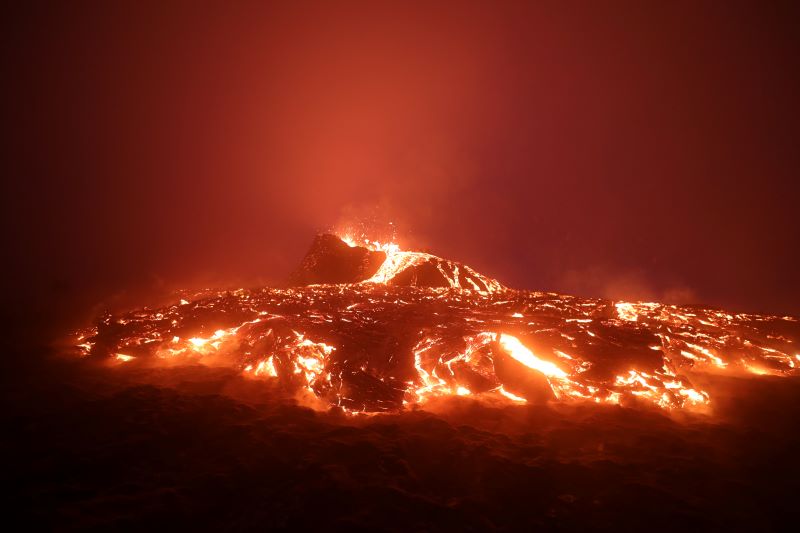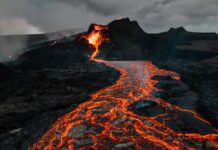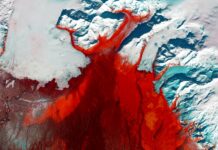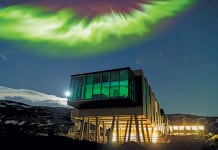
Update: As of Dec. 24, residents of Grindavik, Iceland, closest town to the eruption point, were cleared to return to their homes.
Update: Tuesday night’s report from the Icelandic Meteorological Office stated that the eruption “continues to weaken.” Aerial images showed there are three vents erupting—down from five—but the possibility is there that more vents may open with very little warning.
After keeping Iceland—and air travel interests across the globe—in suspense for weeks, a volcano north of Grindavík erupted Monday evening after a spate of earthquakes rattled the region, spewing lava and smoke across a wide area after weeks of intense earthquake activity.
However, as reported by Reuters, lava from the volcano appeared to be flowing away from the only town in the area, offering hope that homes and lives would be spared even though the seismic activity could last months, officials said on Tuesday. Officials also warned that the situation could change.
Grindavik’s 4,000 inhabitants were evacuated in November as a precaution after days of seismic activity, and roads in the area remain closed. The coastal town is located about 25 miles south of Iceland’s capital, Reykjavik.
Will Flights be Affected?
In a statement, Iceland’s government said flights were unlikely to be affected, easing international travel concerns that flared in October—when volcanic activity near Grindavik on the Reykjanes peninsula began—and the travel industry feared a scenario similar to what happened in 2010, when the ash cloud caused by a volcanic eruption on the North Atlantic island had a major impact on air traffic, grounding flights in Europe and causing massive delays that reverberated around the world.
However, unlike what happened in 2010, the Reykjanes volcano systems are not trapped under glaciers and are thus not expected to cause similar ash clouds.
“If little to no volcanic ash is lofted into the atmosphere, there may be no impact to aviation,” AccuWeather Chief Meteorologist Jon Porter told Reuters.
As of Tuesday morning, Reykjavik’s Keflavik International Airport remained open. The Blue Lagoon, a geothermal spa popular with tourists, has been largely closed since the seismic activity was detected. Depending on whether seismic activity eases or intenses, the situation could improve or deteriorate, so travelers are advised to stay informed.
In any event, volcanology researchers at the University of Iceland said on Facebook that the eruption could potentially produce significant air pollution.
“The good news is that the wind is northwesterly and according to the forecast it will stay northerly for the next few days. Hence, the eruption plume is likely to be blown away from inhabited areas,” the researchers said.
For more information, see visiticeland.com.
You May Also Be Interested In…
Iceland Declares Emergency Due to Volcano Threat









